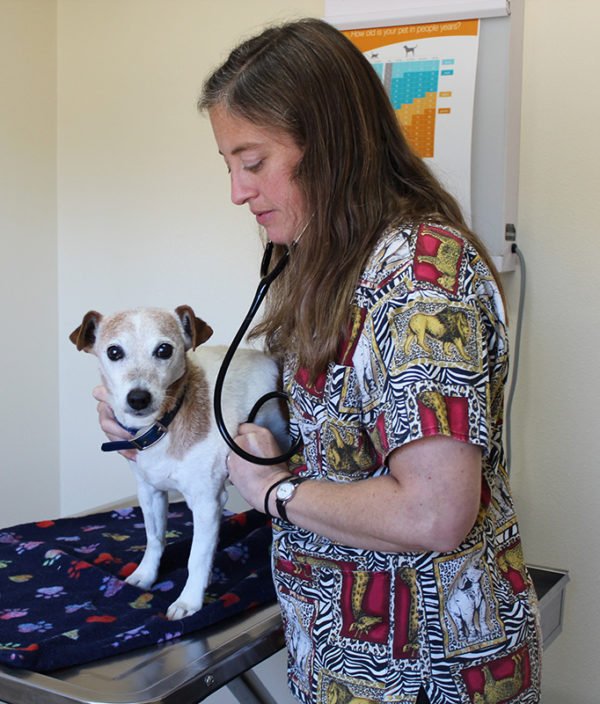Pets are a part of our families, and preventing parasite infestations is an important part of keeping them healthy. Both ectoparasites (external parasites) and endoparasites (internal parasites) can affect your pet at some point in their life. Ectoparasites, such as fleas and ticks, are not only a nuisance to your pet, but can transmit vector-borne diseases to humans and pets such as Bartonella (cat scratch disease, transmitted by fleas), Lyme, Anaplasmosis, Ehrlichia, and Rocky Mountain Spotted Fever. Fleas can also cause a severe dermatologic condition for your pet resulting in very itchy, inflamed skin, due to flea allergy dermatitis.
Roundworms are the most prevalent endoparasite in pets. Others include hookworms, whipworms, and tapeworms. Pets are typically infected with these parasites through accidental ingestion of parasite eggs (which are microscopic) from areas that have fecal contamination from other infected animals. Alternatively, some parasites are acquired through ingestion of intermediate hosts such as rodents (Taenia tapeworm species; Toxocara roundworm species) or fleas (Dipyllidium tapeworm species). These parasites are also a health risk to humans and are considered zoonotic – meaning they can be transmitted from animals to people. For example, if a person accidentally ingests roundworm eggs, the larvae can migrate into the body and cause organ damage and potentially blindness. Hookworm larvae in the soil and grass can infect bare skin and cause a condition in people known as cutaneous larva migrans.
Heartworm is another important endoparasite, but one which is not zoonotic. Heartworm infections result from pets being bitten by infected mosquitos. The larval form of the heartworm travels through the bloodstream to the heart where it develops into an adult. The adult heartworms live in the right side of the heart and if left untreated, result in progressive heart failure and death. In the initial stages of heartworm disease, pets may be asymptomatic. As the condition progresses, symptoms may evolve including a cough and exercise intolerance in dogs, and vomiting/coughing in cats. Treatment of heartworm disease can be very risky for the pet, and very costly.
Because of the health risk to your family and pets, it is important to keep your pet on a year-round parasite-prevention program. There are several preventives that, when used properly, are very effective at greatly reducing the risk of your pet acquiring heartworm disease, intestinal parasites, and tick-transmitted diseases. Additionally, you can help prevent the risk of zoonotic disease to your family by practicing good hygiene (frequent hand washing), avoiding eating unwashed raw vegetables or undercooked meats, and cleaning up pet feces in your yard. For more information about pets and parasites, visit petsandparasites.org, and consult with one of our friendly staff!


